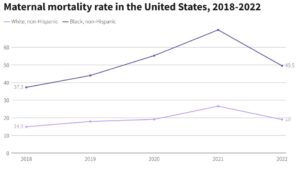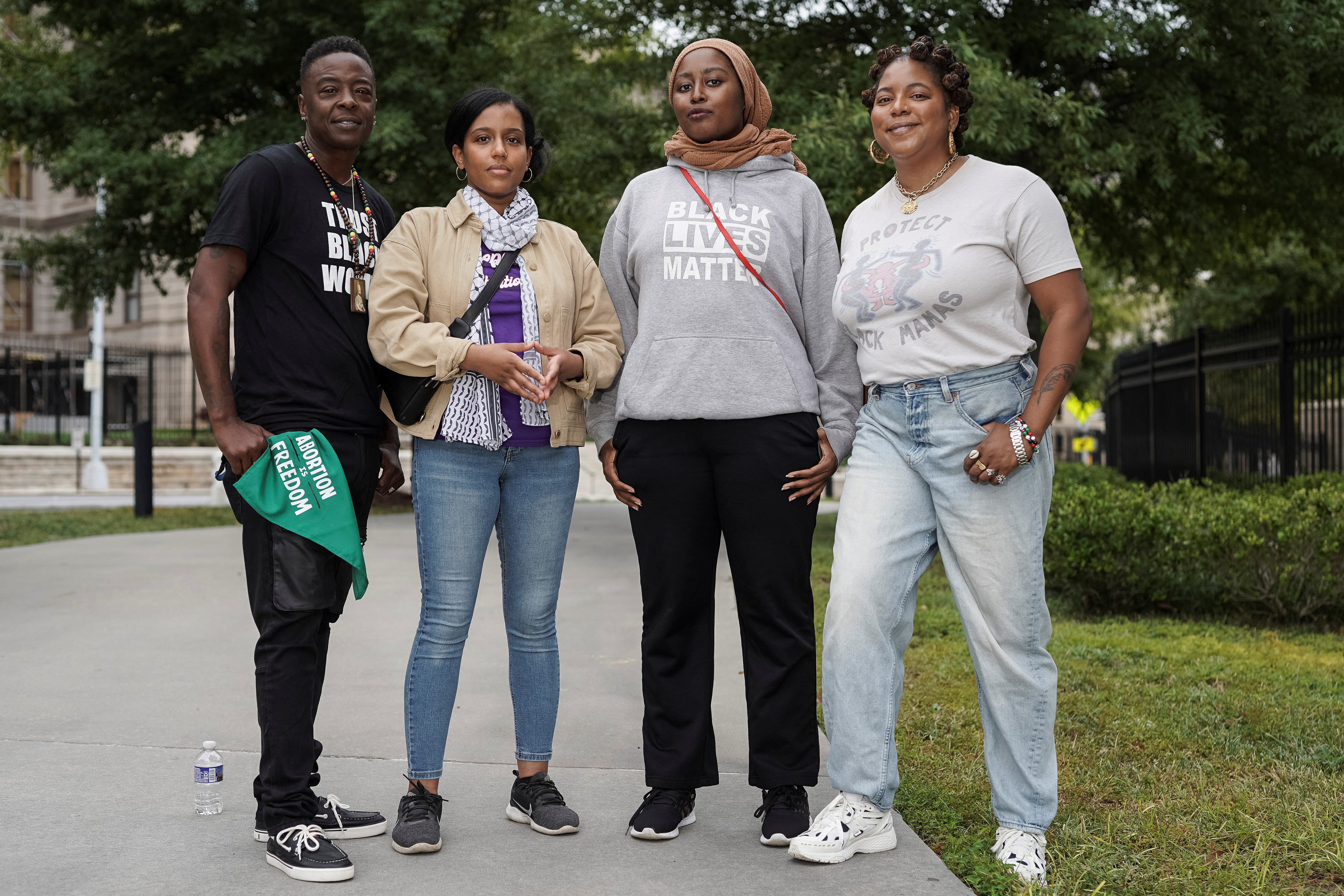ATLANTA, Georgia, Oct 19 (Reuters) – Francisca Shaw said she knew something was deeply wrong as she was rushed into an emergency cesarean for the delivery of her third child, a daughter, at Seattle’s University of Washington Medical Center in 2015.
“I remember I told my doctor when I was getting cut: ‘I can’t breathe,” Shaw recalled saying. “She said: ‘Oh yeah, you can.'”
Shaw’s uterus ruptured during the c-section, causing heavy bleeding. She required a hysterectomy and went into cardiac arrest, according to medical records reviewed by Reuters. She was hospitalized for three weeks after the birth, the records show.
The University of Washington Medical Center did not comment on Shaw’s case, citing federal privacy laws, but said it was “committed to ensuring high quality and equity” in all of its patient care.
Advocates are trying to use the Nov. 5 election as a moment to raise awareness about reproductive health inequities impacting Black women, including higher rates of pregnancy and delivery complications and deaths, as well as higher rates of certain cancers.
Democratic candidate Kamala Harris has made abortion rights a central plank of her campaign – and in campaign appearances has blamed Republican Donald Trump for the deaths of two young Black mothers in Georgia, a state with abortion restrictions.
While public opinion surveys rank inflation and the economy as top priorities for Black women, Reuters spoke to 10 activist groups that said they were aiming to mobilize women of color around issues of systemic health care inequities. The effort is part of a 30-year-old movement for “reproductive justice.”
Such concerns go beyond abortion rights, an issue that has galvanized women since the U.S. Supreme Court overturned the constitutional right to an abortion in 2022.
Shaw, now 43, works as a certified doula, a non-medical professional who assists women during childbirth in Atlanta, Georgia. She said in an interview that attention to reproductive health is critical to winning her vote.
“Black maternal health and reproductive health has to be a conversation that I hear from any candidate for me to be on board to vote for them,” she said.
PREGNANCY COMPLICATIONS
Black women make up 13% of the female population of the United States, but accounted for 41.5% of abortions, opens new tab in 2021.
Black women in the U.S. also face greater risks bearing children. They are three times more likely, opens new tab to die from pregnancy-related causes than white women, according to the Centers for Disease Control and Prevention.
Georgia – where Black people make up 31% of the population – has the eighth highest, opens new tab maternal mortality rate in the U.S. Nearly 16% of women in the state have to travel more than 30 minutes to deliver at a hospital, according to a 2023 report, opens new tab by March of Dimes, a non-profit that works to prevent maternal and infant mortality. Nationally, fewer than 10% of women have to travel that far.

The CDC, opens new taband health experts attribute those gaps to chronic conditions such as cardiovascular disease and hypertension as well as structural racism, implicit bias from healthcare providers and lack of access to quality healthcare.
Leah Wright Rigueur, a history professor at Johns Hopkins University, said abortion restrictions have made it even more difficult for Black women to access emergency care in cases of failing pregnancies or complications from medical abortions.
“The landscape for reproductive health for Black women has gotten far more dangerous in the last two and a half years,” she said.
Since March, In Our Own Voice, a national coalition of eight reproductive justice organizations, said it has spent $2 million on digital ads, billboards and mailers about abortion access and reproductive health to voters in 12 states, including the election battleground states. It has also addressed ballot measures on abortion; several states will vote on abortion access on Nov. 5.
Regina Davis Moss, who heads the coalition, said the groups have made more than 1 million voter contacts, targeting young voters, the LGBTQ community and low-propensity voters.
She did not provide a figure for total number of new voter registrations.












